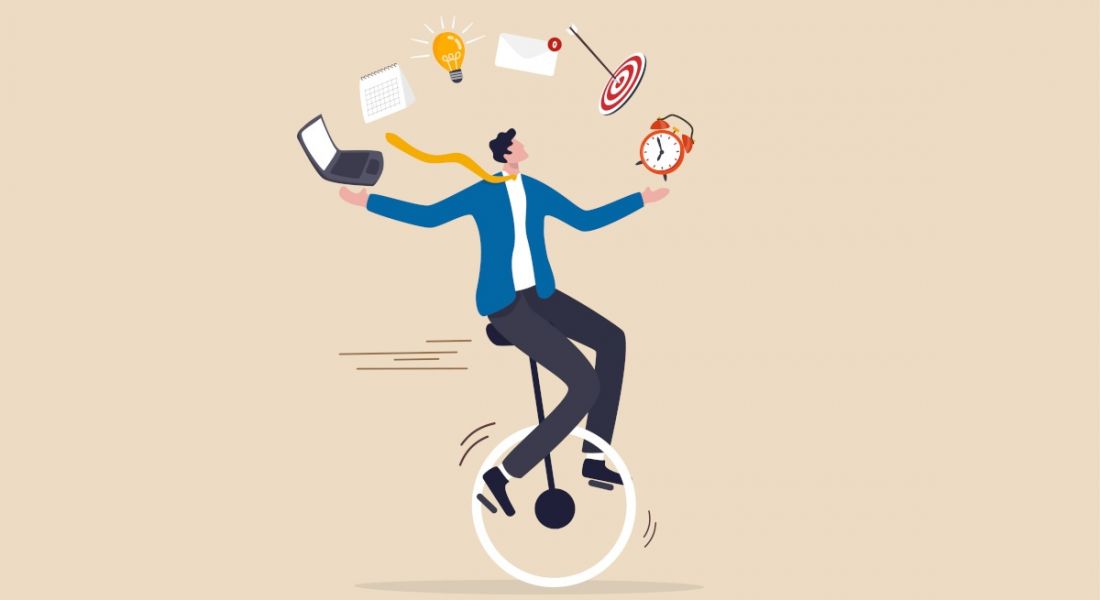Struggling with your productivity at work? Here are some tips, solutions and strategies to help you work to the best of your ability.
It can often be difficult to maintain a steady level of productivity at work. Sometimes you feel burnt out, stressed by your workload or maybe you’re just struggling to concentrate. We all occasionally have days like this, but luckily there are ways of getting past these issues.
We asked a number of employees within the sci-tech industry about the tips they have for improving productivity at work. Here are a few of their solutions.
SMART planning
Yahoo’s Zuoyun Jin says he often uses the SMART goal method to plan his monthly goals. SMART stands for Specific, Measurable, Achievable, Relevant and Time-bound, and is designed to help an individual set goals and objectives in a way that achieves better results.
Specific refers to the exact objectives that need to be achieved and the steps needed to achieve them. Measurable is used to determine the amount that needs to be done. Achievable addresses the realistic expectations of the goal. Relevant refers to why the goal is being completed in the first place. Time-bound looks at how the goal or project needs to be scheduled in order to complete it on time.
By planning goals according to the parameters described in the SMART acronym and ensuring the objective fits into each parameter, one can expect a higher degree of success in the long term. If your goal has been examined using each parameter,
Four Ds strategy
The four Ds strategy is a tactic used by PwC’s Shreya Aggarwal and Bristol Myers Squibb’s Eimear Higgins to prioritise work tasks and ensure successful time management. The four Ds in question are Do, Defer, Delegate and Delete.
By taking a moment to categorise tasks according to these terms, you can achieve your full productive potential and avoid wasting critical time and energy. Look at what needs to be done and figure out whether it’s the highest priority and needs to be completed first (do); whether it can be delayed and completed later on (defer); whether that task needs to be assigned to someone else (delegate); or whether the task is unnecessary and can be removed from your schedule (delete).
The Pareto principle (80/20)
The Pareto principle, also known as the 80/20 rule, is a method used by Anna Murphy, a people success coach at Version 1. This method suggests that 80pc of your success at work comes from 20pc of your tasks, and so the careful prioritisation of tasks is of utmost importance. As Murphy puts it: “Prioritising tasks that will have the most impact on your daily productivity is key”.
The Eisenhower Box
Murphy also uses the Eisenhower Box method – named after the 34th US president and WWII general, who was renowned for his productivity. This is “a simple grid with four quadrants that helps individuals to manage their tasks based on their urgency and importance”.
The four quadrants are labelled as follows: Important but urgent, important but not urgent, urgent but not important, and not important and not urgent. By categorising tasks according to these quadrants, one’s productivity, success and overall time management can be greatly improved.
Lists and sticky notes
A common answer when asked about productivity tips, lists are a simple yet effective way to improve and increase productivity. The organisational value of lists is not lost on Ciaran Chaney, head of workplace and IT at Personio, who advises that you should spend the first 15 minutes of the day making a to-do list in order to keep on top of your schedule. Similarly, BT Ireland’s Moya Clarke suggested that you should keep an active to-do list throughout the day.
Sticky notes are also a useful resource, according to Stephen Fearon of Henkel Adhesive Technologies, who uses them as a checklist on his notice board at work. “Every morning, I check the board, take off the most important tasks for the day and put it on my bench and try to address them one by one, crunching them up when I am finished. Anything that is not completed gets put back on the board and prioritised for the following day.”
Limiting distractions
Distractions at work can be a common obstacle for productivity, yet there are ways to reduce them. A common distraction is constant notifications from various channels of communication, such as your phone or your email.
Chaney, Murphy and Higgins all suggested turning off your phone or email notifications, so that you can check them at dedicated times and avoid interruption while completing tasks.
Simply putting notifications on ‘do not disturb’ can yield subtle yet effective results and can help you fully focus on your duties and maintain vital concentration throughout the day.
Identifying optimal working times
According to Chaney, identifying the times at which your working capacity is at its best is vital for ensuring productivity, along with recognising when it’s just a difficult day for you and accepting it.
“Everyone struggles with feeling unproductive from time to time, and so my number one piece of advice is to simply accept this and take it in your stride,” he said.
“Identify when you work at your optimal capacity and ensure you work on your harder, longer tasks and projects during these times. Then when you’re finding it harder to focus, accept that today isn’t the day you’re going to make that big breakthrough on the project you’ve been working on and focus on your ‘quick tick’ tasks instead.”
Time away from desk
Finally, a frequent piece of advice for anyone struggling with productivity is to simply take a break and step away from the desk for a moment. A quick venture outside for fresh air or a stretch of the legs can really benefit your capacity for productivity and refresh your mind.
No one can sit at a desk for eight or nine hours straight and work to their full potential. Finding the time to catch a break is incredibly important and will benefit you both during work hours and outside of your schedule.
10 things you need to know direct to your inbox every weekday. Sign up for the Daily Brief, Silicon Republic’s digest of essential sci-tech news.




